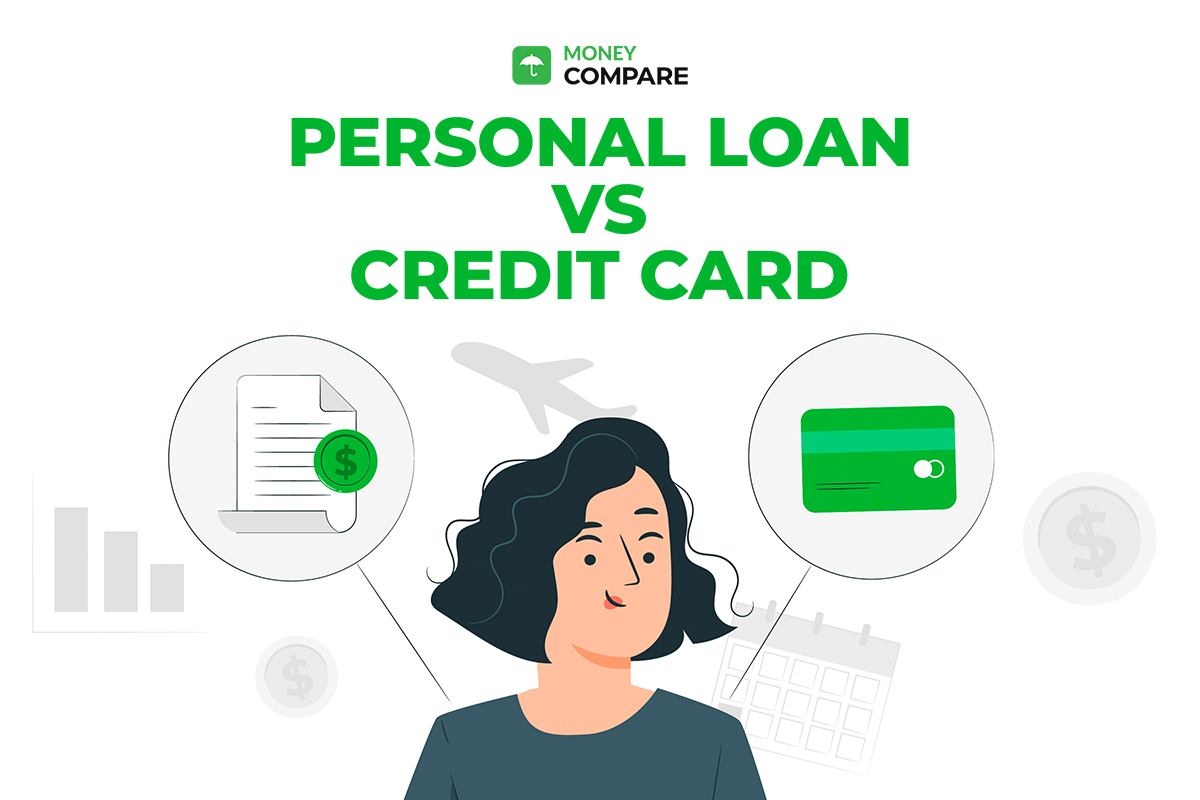Personal loans and credit cards have one significant similarity. They are both ways you can borrow money. However, there are some key differences and pros and cons to both. It is important to consider the different options so that you can make the most informed decision and ensure the choice is right for your needs.
Personal Loans
Personal loans are designed to lend borrowers a set amount of money. This money must be paid back over time, and the lender and the borrower will agree to a repayment schedule. Personal loans have a fixed term and they are typically 2-5 years long. Personal loans do not usually allow borrowers access to ongoing funds, but you can request to borrow more money and re-configure your loan. You can generally use your personal loan for any kind of purchase, such as a car, to buy new appliances, for a wedding, or even for travel. However, it’s important to understand that there are two kinds of personal loans, secured and unsecured. Be sure you understand the difference between them!
Pros of a Personal Loan
Spending Within your Budget
Personal loans are a fixed amount of money that you must pay off within a determined time. You cannot increase the amount borrowed unless you reapply. So, it’s a great way to borrow money within your means and ensure your repayments are kept organised and consistent.
Predictable Repayments
Because personal loans provide a single lump sum for you to borrow, with a fixed term and interest rate, your repayments will be consistent, predictable, and easier to manage. Personal loans generally have a lower interest rate than credit cards.
Cons of a Personal Loan
There are No Rewards
Personal loans don’t come with rewards and benefits like credit cards do. The only benefit you may receive from the personal loan is an increase to your credit score. But you won’t earn anything like cash rewards or Airpoints.
There are Fees
Personal loans typically come with several fees. For example, if you default on your payment, you may have to pay a repayment fee. If you decide to pay the loan off early with your savings, you may have to pay an early repayment charge. There are also risks with secured loans. For example, if you miss payments, your lender will have the right to repossess the asset that they have security on such as your car.
Credit Card
Credit cards work differently to personal loans in that they offer what is known as revolving credit – this means that the borrower has access to ongoing funds that they must pay back. Borrowers can access a specified amount of money up to a certain limit. However, you don’t receive that money in full and you can use it as and when you need. You will only need to pay interest on the money you spend. It’s also important to note that, unlike personal loans, your monthly repayments will not always be the same. They will vary depending on how much you have chosen to spend, and whether you have accrued interest. You only accrue interest if you don’t pay back the money for a purchase within a certain period of time, usually a month or 45 days, depending on the card you choose. Many credit cards also offer rewards and benefits such as earning cash or Airpoints.
Pros of a Credit Card
Interest is Applied to Money Spent
You are only charged interest on money you spend. And the interest is only applied if you don’t pay the borrowed money back after a certain period of time, such as a month.
Rewards and Benefits
Credit cards often come with a range of rewards and benefits, depending on the kind of card you choose, and the type of reward you would like to earn. For travellers, they can earn Airpoints for certain amounts of money spent on the credit card. And for those who want rewards on everyday things like groceries and petrol, you can receive cash rewards as you spend on the card.
Flexibility
Credit cards don’t come with a fixed term. You are typically able to repay the funds whenever you can, as long as you are making regular repayments.
Cons of a Credit Card
Interest is Typically Higher than Personal Loans
Interest rates are typically higher than that of personal loans because you have access to ongoing funds. The lender will charge you this higher interest due to the flexibility of the repayments and the leeway that you have to pay it off before the interest incurs – usually 30-60 days depending on the credit card you have.
You can Fall into a Cycle of Debt
Because you have access to ongoing funds with a credit card, it can be easy to fall victim to a cycle of debt if you don’t pay off your balances before interest incurs. They are also very easy to use and small purchases can add up quickly, especially when interest is added. If you choose to get a credit card, it is important to maintain a budget, and keep track of your spending so that you can be sure to pay off the balance before interest incurs.
Mastering the Art of Budgeting: 6 Tips for a Budget





